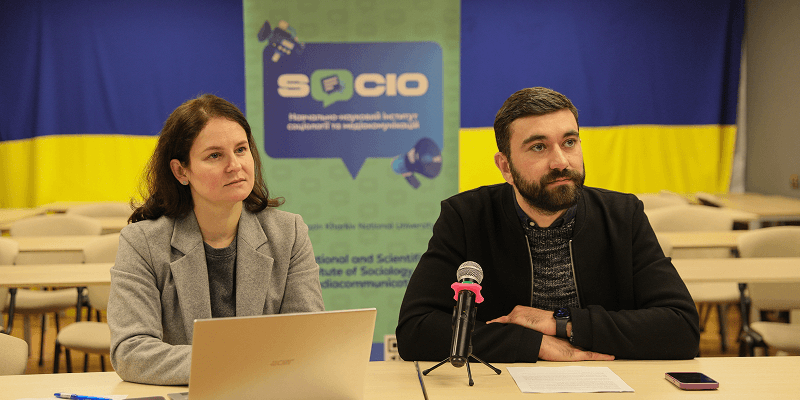Science Day: Names of Karazinites in Scientific Discoveries

May's third Saturday is a significant day for anyone who has ever been involved in science. Today, Ukrainians celebrate Science Day — a holiday established to support the initiatives of prominent scientists, research institutions, as well as professional associations in Ukraine.
The scientific achievements of Kharkiv and other Ukrainian scientists are inexhaustible. Even today, on the 815th day of the full-scale russian invasion, we prove to the world that science cannot be stopped! Unyielding researchers spread knowledge, make discoveries, and work fruitfully in the fields of science and education, nurturing new generations of scientists.
Karazin University sincerely congratulates the community on Science Day! We wish that every day is filled with new experiences and vivid emotions. May ideas never cease, and may your achievements be duly appreciated not only by Ukraine but by the whole world!
On the occasion of the holiday, we have prepared a collection of renowned scientists from Karazin University who have left an indelible mark on the world of science.
Sergiy Utevsky and Andriy Utevsky
Sergiy Utevsky is a Ukrainian zoologist, a specialist in leeches, and a Doctor of Biological Sciences. Andriy Utevsky is a Ukrainian zoologist, a specialist in leeches, and an Associate Professor at the Department of Zoology and Animal Ecology at V. N. Karazin Kharkiv National University.
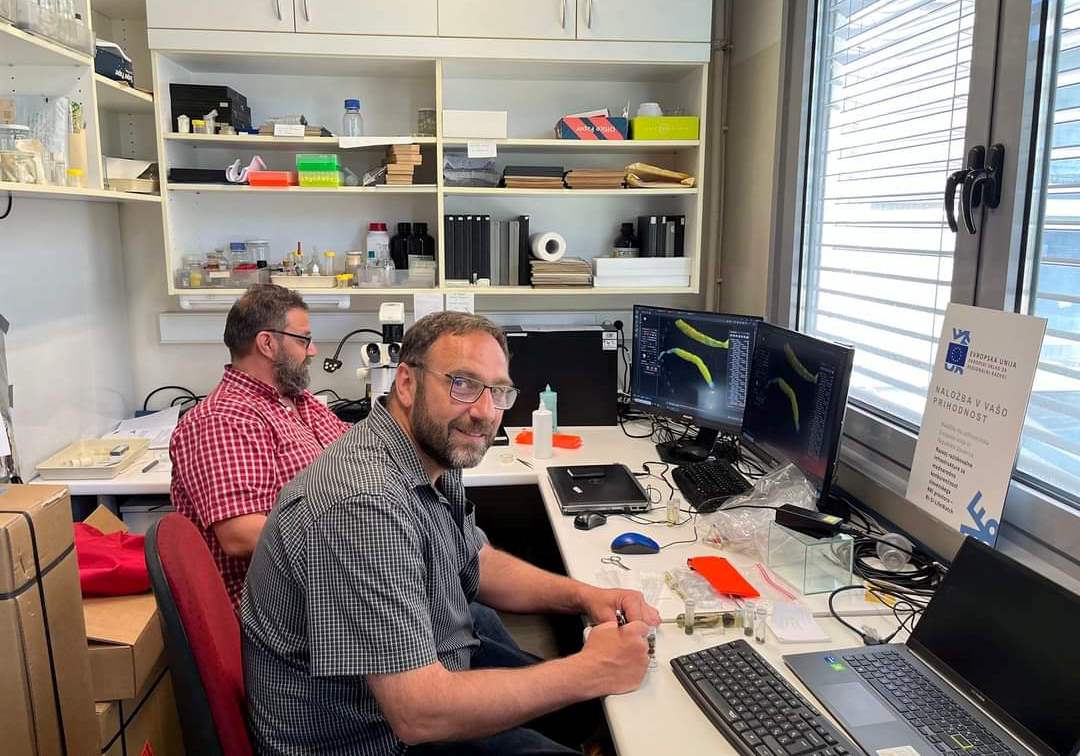
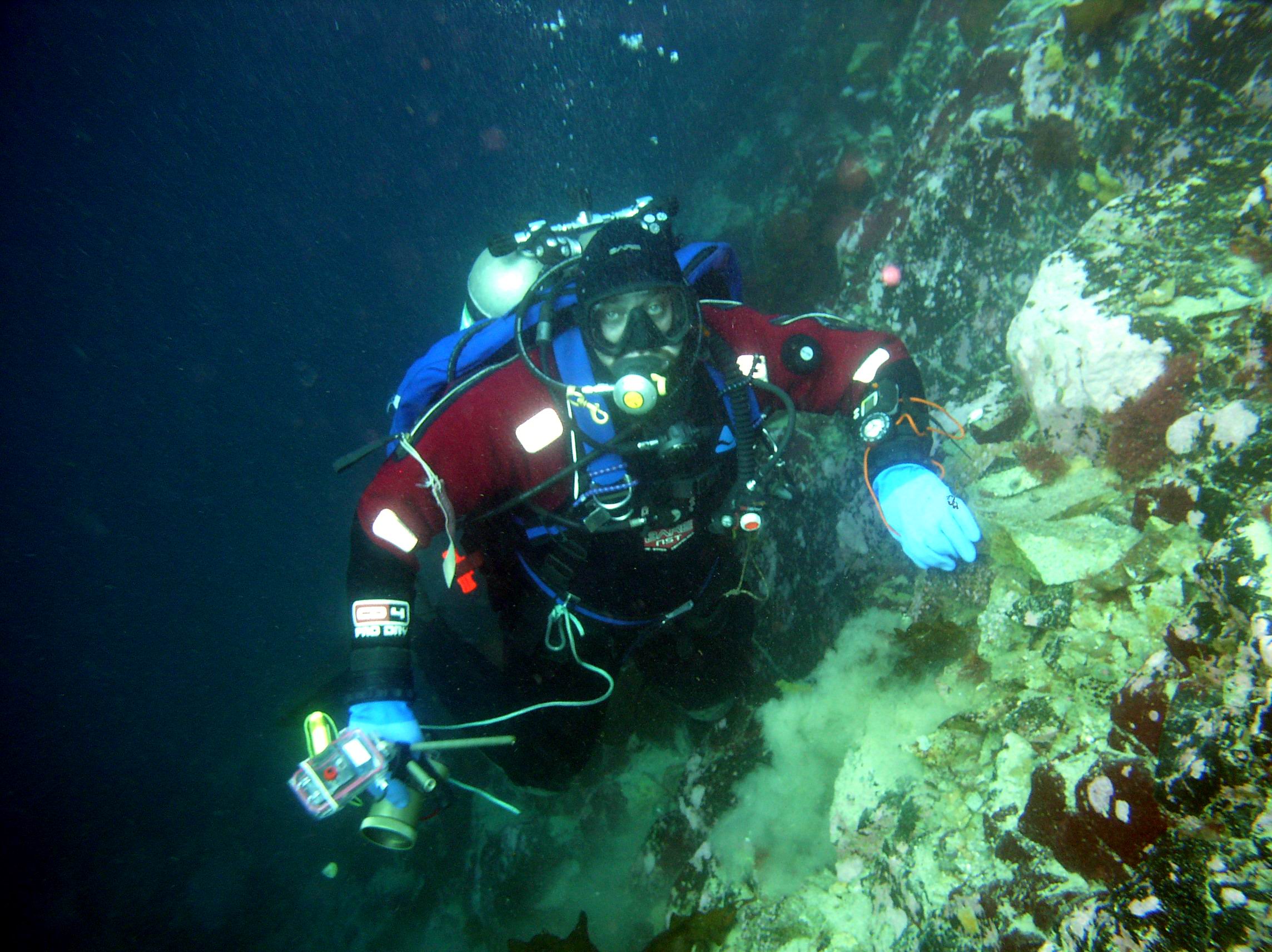
Along with colleagues from Poland, Alexander Bielecki and Joanna Cichocka, Mario Santoro from Italy, and Peter Trontelj from Slovenia, Sergiy and Andriy researched the distribution of fish parasites — sandpipers. They discovered a previously unknown species, which inhabits the seas around Antarctica in the Ross, Cosmonauts, and Riiser-Larsen Seas.
It turned out that the new leech belongs to the group known as "platybdellids." This group consists of species with boreal-arctic distribution, meaning they live in the Arctic and adjacent waters of the Atlantic and Pacific Oceans. It's like finding a polar bear in Antarctica!
How could such an extraordinary geographic distribution arise? How did a representative of the boreal-arctic group of species end up in Antarctica? Scientists hypothesized that the northern ancestor of the new species crossed tropical waters and ended up in Antarctica. However, in that case, the cold-adapted species would have had to spend some time in warm tropical waters, before transitioning to life in the cold seas of Antarctica. Another explanation could be a temporary cooling of the tropics during past global climate changes, which created more favorable conditions for cold-adapted organisms.
Phylogenetic analysis and reconstruction of ancestral ranges showed that fish leeches originated in the seas around Antarctica, then spread throughout the World Ocean, reached the Arctic, and penetrated freshwater bodies in the Northern Hemisphere. However, later on, the ancestors of our species returned from the north to the homeland of the ancestors of the entire family of fish leeches in Antarctica!
Zoologists classified the new species into a new genus, which they named Austroplatybdellina, translating from Latin as "southern platybdellin," because this Antarctic leech belongs to a predominantly northern group of platybdellins.
More details about the discovery can be found at the link.
On July 7, 2024, marks the 102nd anniversary of the birth of the eminent Kharkiv mathematician, Honorary Doctor of Karazin University, and Academician of the National Academy of Sciences of Ukraine, Volodymyr Oleksandrovych Marchenko.
.jpg)
His work on inverse problems for Sturm-Liouville-type differential equations played a crucial role in the development of a new method for solving differential equations with partial derivatives of a certain class, which became known as the "Method of Inverse Scattering Problems." Marchenko's integral equation is the cornerstone of this method.
The discovery of the "Method of Inverse Scattering Problems" was one of the most significant achievements in mathematical physics in the second half of the 20th century, and its development continues to be relevant today due to its numerical applications in solving problems in various fields of modern physics.
Recently, Volodymyr Oleksandrovych has been conducting new research in the theory of matrix and differential operators. He is the author of about 150 scientific papers, including 15 monographs, three of which have been published in the last decade. These works speak to the enduring talent of Volodymyr Marchenko. He remains as always, filled with strength, energy, and new creative ideas.
The influential International Organization Institute of Electrical and Electronics Engineers (IEEE) is a global leader in the development of standards for electronics and electrical engineering. In 2019 recognized the achievements of the Kharkiv radio physicists for their significant contribution to the advancement of global science and technology. The IEEE Milestone award was dedicated to the creation of the "Zenit" radar in 1938, which was able to accurately determine all three coordinates of an aircraft in flight, whereas previous systems could only determine two coordinates. Such an award is only bestowed upon scientific and engineering achievements recognized as global landmarks. It is worth noting that out of approximately 200 existing IEEE Milestones, only 6 are related to radar.
For the Ukrainian microwave and radar community, this recognition from IEEE holds tremendous significance: thanks to it, the remarkable work of three Kharkiv radio physicists, Abram Slutsky, Oleksandr Usikov, and Semen Braude, Ukrainian pioneers in the development of magnetrons and the study of microwaves, has gained international recognition.
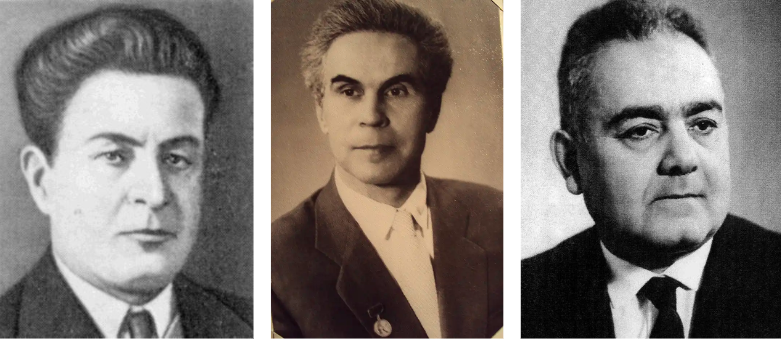
The IEEE Milestone plaque is the first of its kind awarded by IEEE in Ukraine. It was presented to Karazin University (located at the entrance to the School of Radio Physics, Biomedical Electronics, and Computer Systems) because all three main developers of the radar studied and worked at Karazin University at the time.
Konstantin Eduardovich Nemchenko
Konstantin Nemchenko is the Head of the Department of Computer Physics at the Research Institute of Computer Physics and Energy, a graduate of Karazin University, and the dean of the School of Physics and Energy (2009–2016).
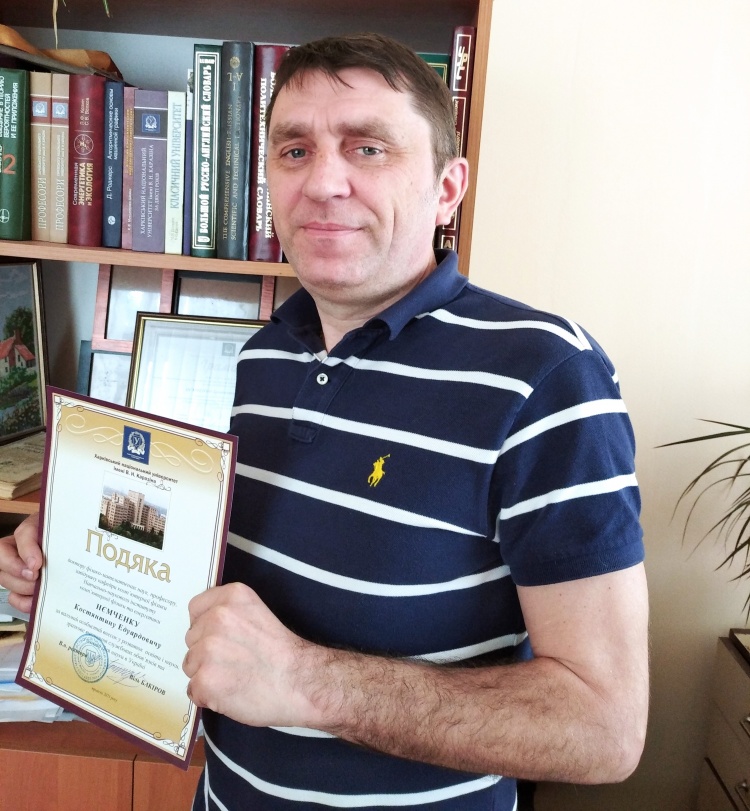
Konstantin Nemchenko has been engaged in research on quantum fluids and crystals for the past 37 years and has made significant contributions to the field of theoretical physics. He is a renowned expert in the theoretical physics of superfluids and solids. Nemchenko has obtained several important solutions to problems concerning kinetic phenomena in various quantum systems, including thermal flows in nanostructures and beams of quasi-particles in quantum fluids.
To explain the unique phenomena of the complete absence of the theory of anisotropic phonon systems, Konstantin Nemchenko has pioneered a new scientific direction in theoretical physics. Based on this new direction, it has become possible not only to explain a whole range of unusual phenomena but also to predict new effects that have been experimentally confirmed. The results of Konstantin Nemchenko's research have been published in over 110 scientific papers in publications indexed in the international scientific database Scopus, and his Hirsch index is 13.
Alexander Potebnya
Alexander Potebnya (1835–1891) was a prominent Ukrainian linguist, Professor at Karazin University, philosopher, language and literature theorist, folklorist, ethnographer, educator, and public figure. He authored fundamental works that became milestones for Ukrainian and Slavic philology in general.
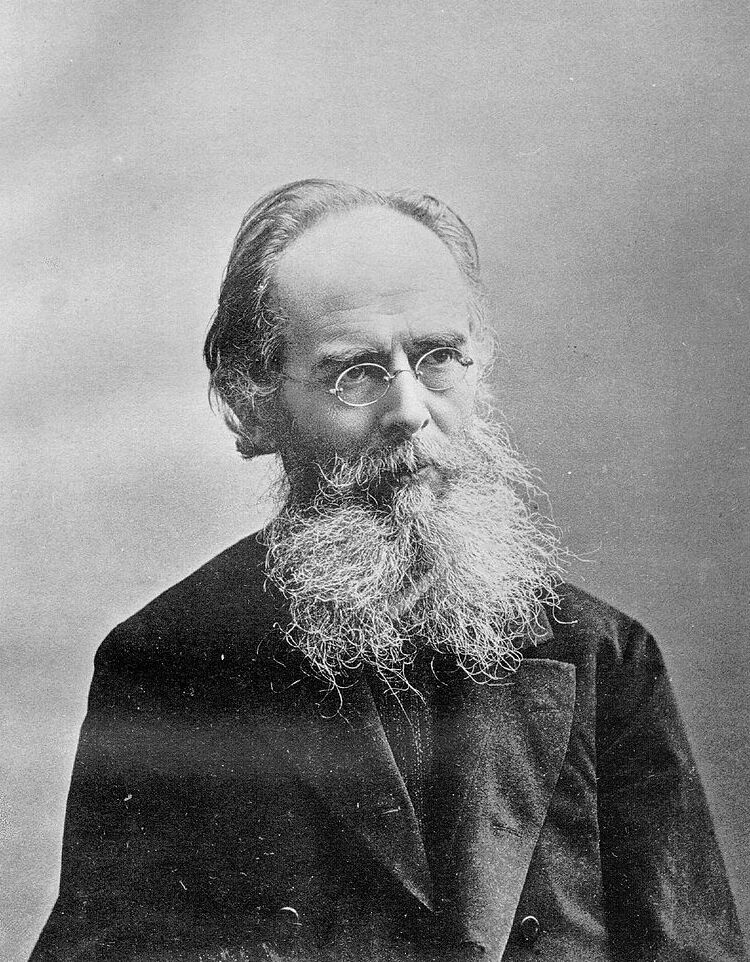
Alexander Potebnya made a significant contribution to the development of various branches of linguistics, including general linguistics, phonetics, grammar, semantics, etymology, historical grammar, and dialectology of East Slavic languages, as well as comparative-historical linguistics. Alexander Opanasovich is the founder of the Kharkiv Philological School.
Potebnya's ideas about the essence, evolution, and functions of language far surpassed the contemporary linguistics of his time and exerted a powerful influence on many domestic and foreign linguists. His ideas outlined new directions of research that remain relevant to this day. The scientific positions in the works of the scholar, as well as the methodology and methodology of linguistic analysis, became important prerequisites for the formation of a whole range of linguistic disciplines such as linguo-folkloristics, linguo-culturology, and ethnolinguistics. The depth and scale of Alexander Potebnya's ideas were fully understood only in the 20th and 21st centuries. Thanks to this outstanding scholar, the Kharkiv School of Philology gained pan-European significance.
Olexander Volodymyrovych Rebrіy
Alexander Rebrіy is a Doctor of Philological Sciences, a Professor, and the Head of the Department of Translation Studies named after Mykola Lukash. He is the author of over 150 scientific publications and more than 20 textbooks, including "Fundamentals of Translation Notation" and "Translation of English-language Socio-political Literature," which are considered exemplary educational and methodological guides for translation studies in Ukrainian higher education institutions.
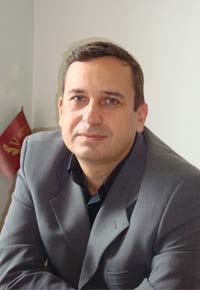
Under the guidance of Professor Alexander Rebrіy during the academic year 2023–2024, the department developed and implemented a specialized course for training conference interpreters with the support of the Directorate-General for Translation of the European Parliament. It is worth noting that the grant project "Conference Interpreting: Master's Course," within which this course is being implemented, became the first grant funded by the European Parliament obtained by representatives of Karazin University. Programs of this nature are aimed at accelerating European integration and ensuring that the Ukrainian language is heard and perfectly interpreted within the walls of the European Parliament and the European Commission.
Professor Rebrіy is also involved in a social project translating the works of prominent scholars from the renowned scientific schools of Kharkiv, including the globally renowned linguist Alexander Potebnya, into Ukrainian. In June 2022, Alexander Rebrіy was awarded the insignia of the State Special Communications and Information Protection Service of Ukraine "For Assistance to the State Special Communications and Information Protection Service of Ukraine."
Yevhen Yukhymovych Badiyan
Yevhen Badiyan is a PhD in physical and mathematical sciences and a Professor at the Department of Solid State Physics of the School of Physics at Karazin University.
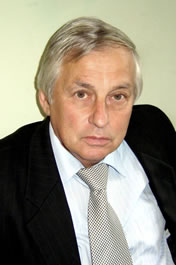
Yevhen Yukhymovych is the author of the monograph "Practical Crystallography" and has co-authored over 200 scientific publications, including 18 author's certificates and patents for inventions.
He established a scientific laboratory for determining the mechanical characteristics of solid materials and a laboratory for optical methods of investigating the surface structure of samples, as well as a special workshop on physical material science. He introduced technical means of teaching and produced a significant number of models and devices (some based on his inventions) for teaching various specialized courses.
Additionally, Yevhen Yukhymovych supervised and co-supervised over 25 fundamental research projects. His scientific interests include the physics of strength and plasticity of crystalline materials, the relationship between structural changes and relaxation processes during plastic deformation of crystalline materials over a wide temperature range, and X-ray structural studies. For many years, Yevhen Yukhymovych has been engaged in researching the stability of laser-reflective coatings, the influence of space factors on the properties of polymer materials, and the properties of reinforcing coatings. He has achieved significant scientific results in these research areas.



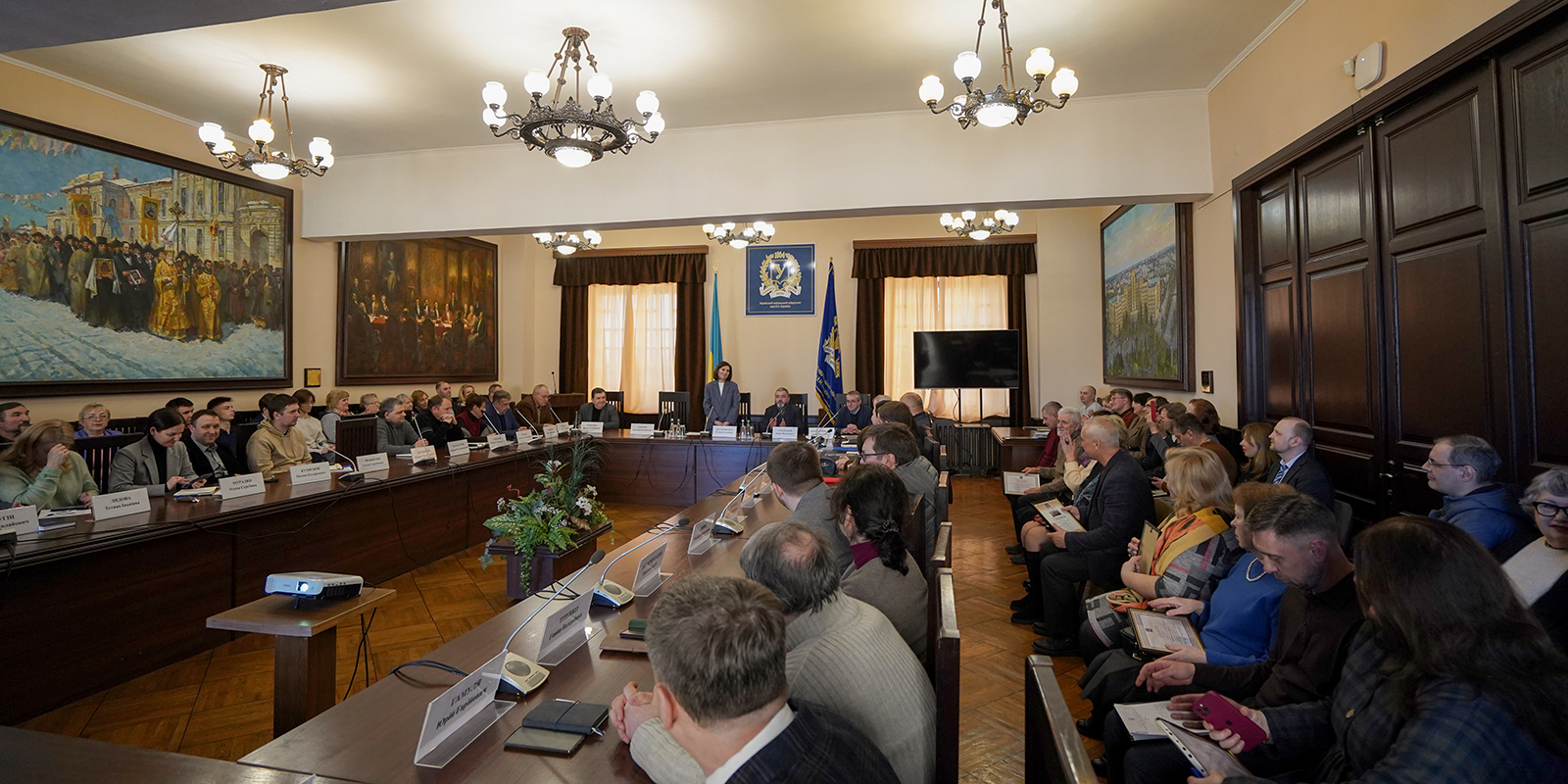

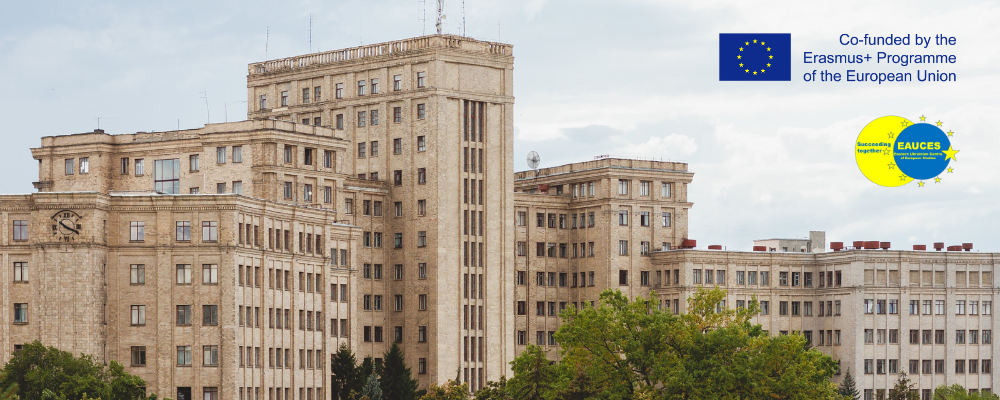
.jpg)
.png)
.jpg)
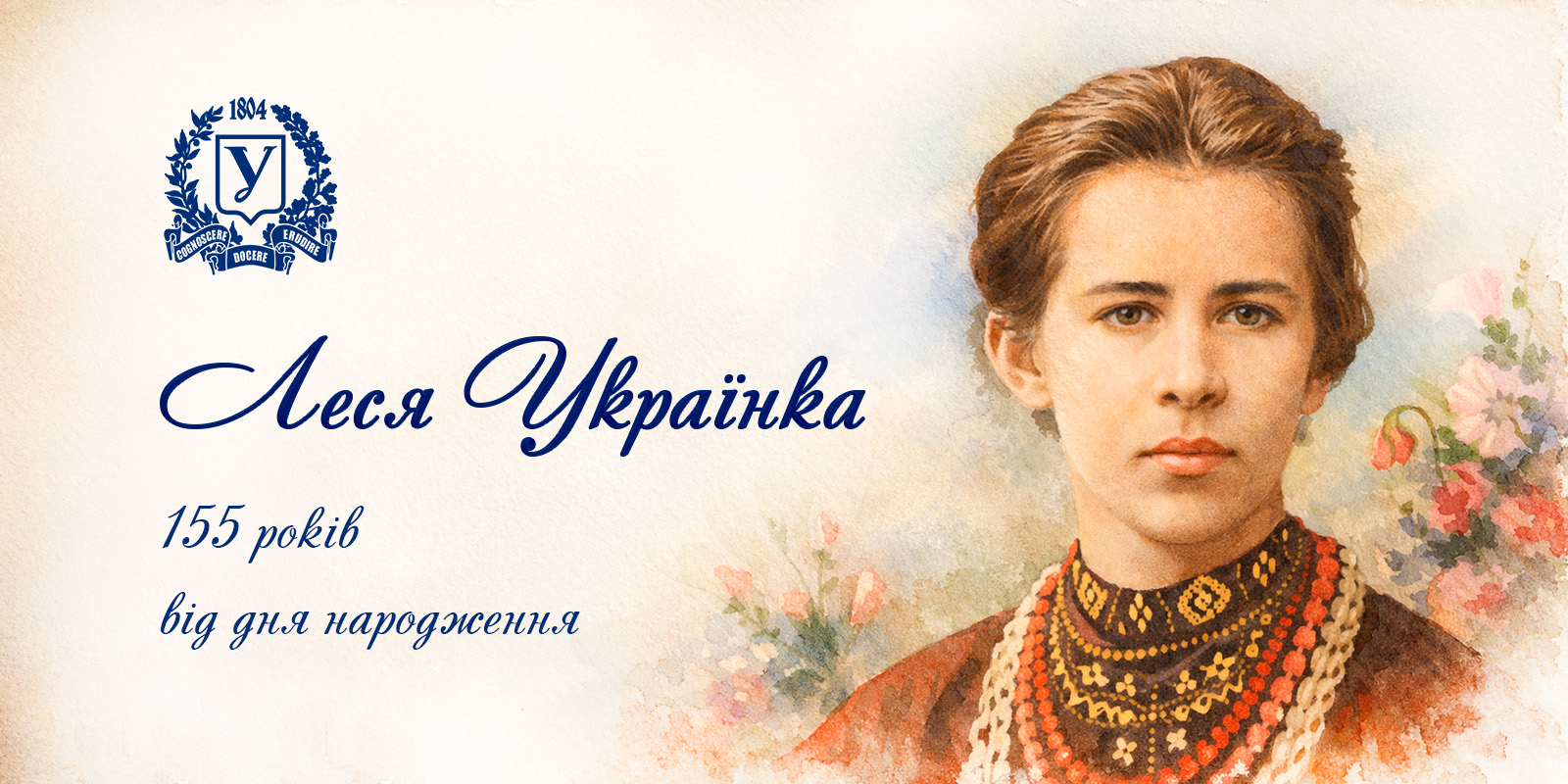
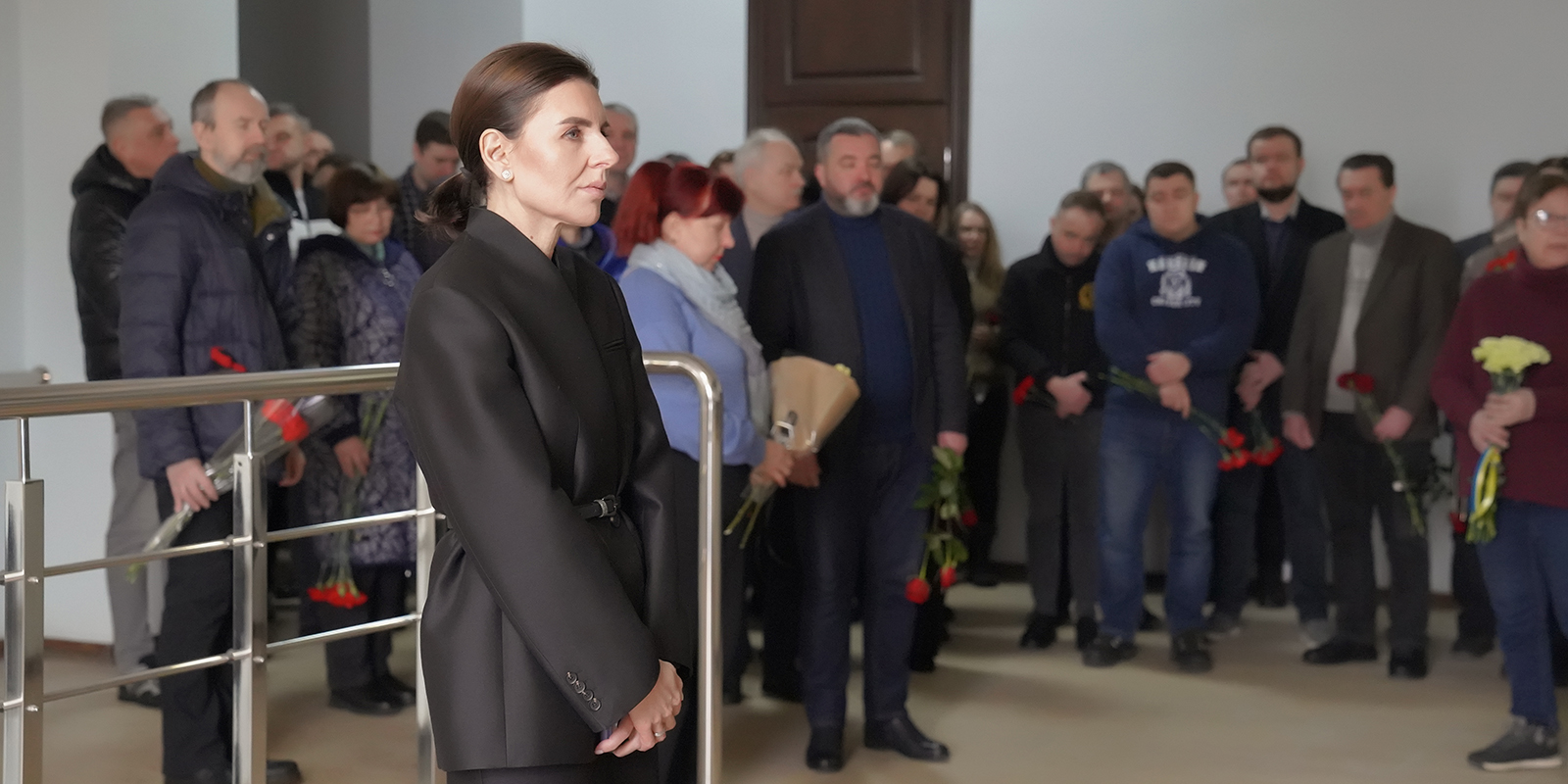
.jpg)
